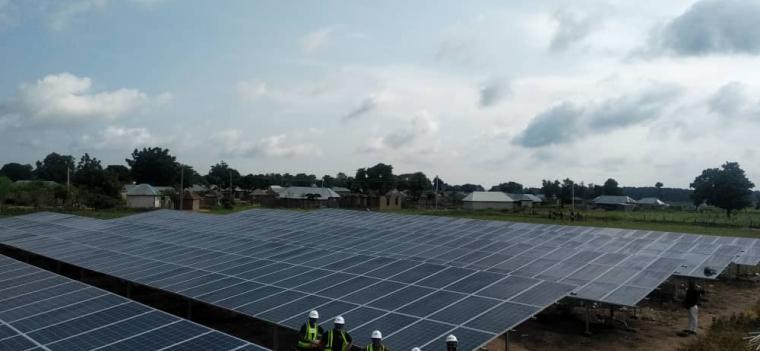News
- The Sustainable Renewables Risk Mitigation Initiative (SRMI), launched at COP24, is supporting over 20 developing countries in their energy transition by de-risking private sector investments in renewable energy and increasing access to affordable and modern energy.
- The SRMI Facility (Phase 1) will unlock 2.5 GW of solar and wind projects in Botswana, Central African Republic, Democratic Republic of Congo, Kenya, Mali, Namibia and Uzbekistan, providing access to green and reliable electricity to four million people.
The Sustainable Renewables Risk Mitigation Initiative (SRMI), launched at COP24, is supporting over 20 developing countries in their energy transition by de-risking private sector investments in renewable energy and increasing access to affordable and modern energy. With our partners, the International Solar Alliance (ISA), the French Development Agency (AFD), and IRENA, the World Bank developed an innovative framework to help governments realize their NDC targets. In March, the Green Climate Fund (GCF) approved a USD 280 million climate finance Facility to be blended with USD$1.3 billion of World Bank financing.
"The Sustainable Renewables Risk Mitigation Initiative (SRMI) is a key component of our energy transition strategy. With our partners, ISA, AFD and IRENA, we developed an innovative framework to help governments realize their NDC targets. Thanks to the GCF financing, we will unlock 2.5 GW of solar and wind projects in seven client countries, aiming to leverage over USD 3.3 billion in private investments and provide access to green and reliable electricity for the poorest households," said Pablo Fajnzylber, Acting World Bank Vice President for Infrastructure.
The SRMI Facility (Phase 1) will unlock 2.5 GW of solar and wind projects in Botswana, Central African Republic, Democratic Republic of Congo, Kenya, Mali, Namibia and Uzbekistan, providing access to green and reliable electricity to four million people. Thanks to SRMI, countries will be able mobilize private investments at scale while maximizing socio-economic development and gender empowerment.
To learn more, please visit: https://esmap.org/srmi
